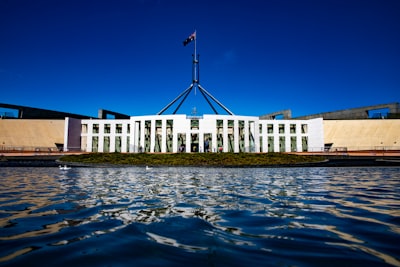Introduction: The Resurgence of Parliamentary Scandals
In 2024, headlines once again raised public concerns over the integrity of democracy with new allegations of MPs facing cash for questions claims. With growing public discourse around transparency in UK politics, these stories demand that we examine the roots and repercussions of parliamentary scandals, the lobbying industry, and the urgent need for political accountability and updated parliamentary standards.
Why Does "Cash for Questions" Still Resonate?
Cash for questions refers to the unethical practice where Members of Parliament (MPs) allegedly accept money or favors in return for raising specific questions or issues in Parliament. While the most notable British scandal broke in the 1990s, recent developments—amplified by headlines like those in The Times—underscore the issue's persistence and evolving forms.
Search trends highlight growing queries like:
- What is the cash for questions scandal in UK politics?
- How do MPs declare financial interests?
- What are the rules on lobbying in Parliament?
- What happens when parliamentary standards are breached?
Understanding Parliamentary Accountability and Ethics
What Are the Rules for MPs and Lobbying?
Parliamentarians in the UK are bound by the MPs’ Code of Conduct, which requires them to:
- Declare any financial interests relevant to their parliamentary work.
- Avoid conflicts of interest.
- Not accept payment for influencing policy or asking questions—known as “paid advocacy.”
However, the boundaries are constantly tested by lobbyists, donors, and political consultants, sometimes exploiting loopholes or lax enforcement.
How Do Cash for Questions Scandals Affect Democracy?
The revelation of cash for questions undermines public trust in government and feeds cynicism about democracy itself. Key implications include:
- Eroded public confidence: Citizens may lose faith in the fairness and transparency of governing bodies.
- Calls for reform: Scandals prompt demands for stronger lobbying regulations and parliamentary oversight.
Emerging Debates: The Future of Political Transparency
The 2020s have seen renewed proposals for:
- Real-time lobbying registers to document who is influencing MPs and why.
- Independent watchdogs with greater enforcement powers.
- Public-facing databases for tracking MPs’ outside financial interests and gifts in near real-time.
These debates are fueled by global events, as other democracies grapple with influence peddling and the rise of “dark money” in politics. As a result, many search for:
- How do UK lobbying laws compare to those in the US or EU?
- What are the latest cases of MPs facing cash for questions?
- What can citizens do to demand greater transparency?
How Can Accountability Be Improved?
Best practices for reducing the risk of corruption in government include:
- Making all MP financial interests and meetings with lobbyists public and searchable.
- Strengthening penalties for breaches—not just suspensions, but substantial consequences.
- Providing more resources for independent bodies like the Parliamentary Commissioner for Standards.
FAQs: Cash for Questions, Explained
Q1: What is the cash for questions scandal?
MPs accepting payment to ask questions or promote interests in Parliament, breaching ethical rules.
Q2: How are MPs regulated against this?
Through the MPs’ Code of Conduct, mandatory declarations, and oversight by ethics watchdogs.
Q3: Where can I check MP interests?
Visit the Register of Members' Financial Interests for up-to-date disclosures.
Conclusion: Ensuring Integrity in Public Office
As cash for questions allegations re-emerge, the UK faces a crossroads: uphold its democratic values through transparency and strict enforcement, or risk deepening public skepticism and disengagement.
For those tracking political scandals, lobbying regulations, and the future of parliamentary ethics, these developments signal the urgent need for continued vigilance and meaningful reform.
This article was inspired by the headline: '‘Tell me what to ask about’ — MP faces cash for questions claims - The Times'.

Comments
No comments yet. Be the first to comment!